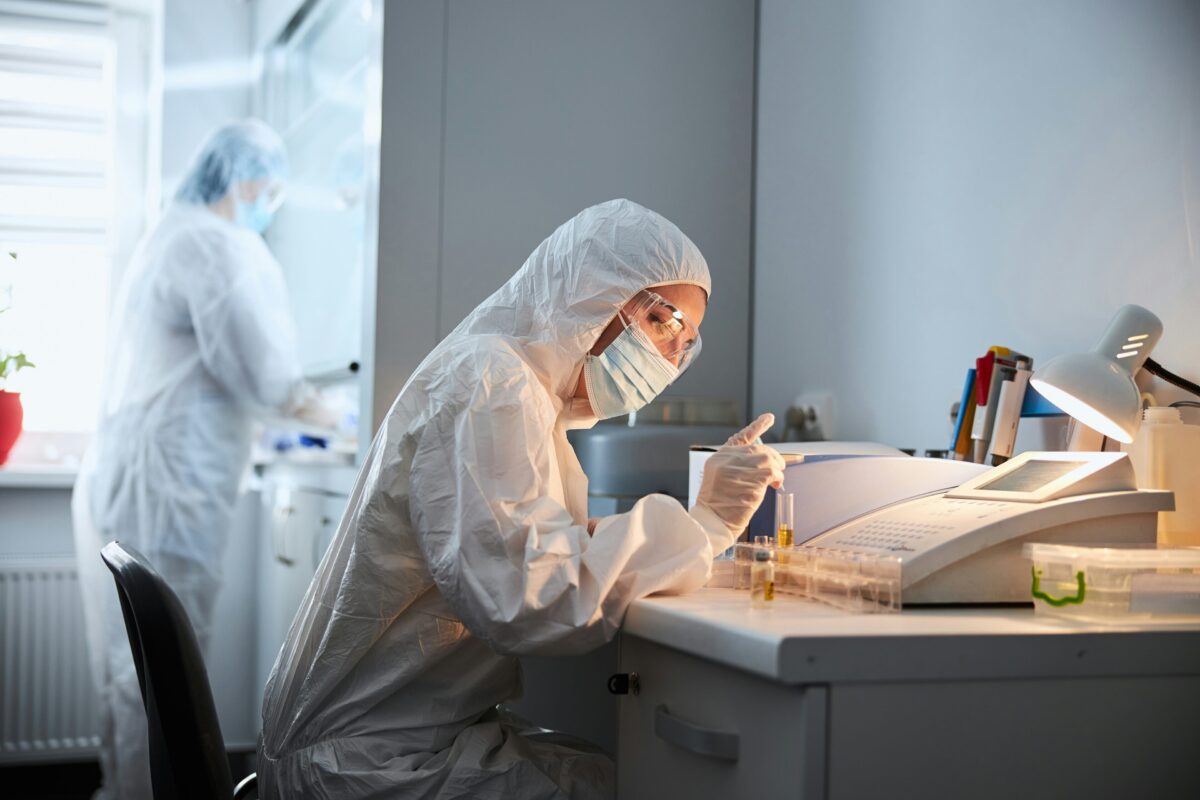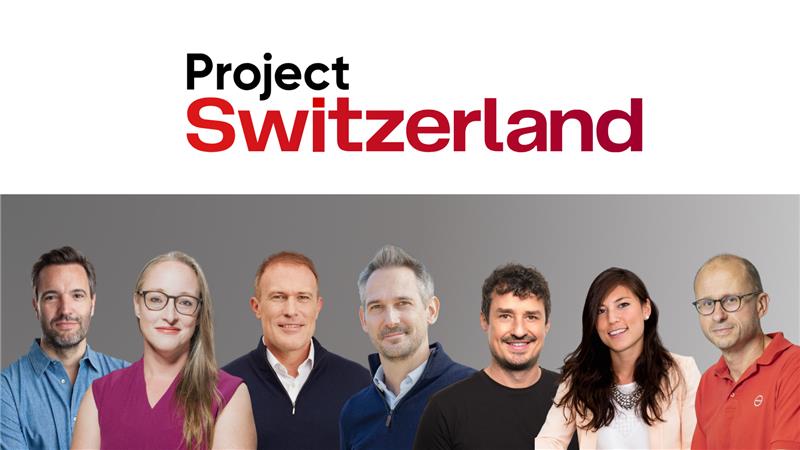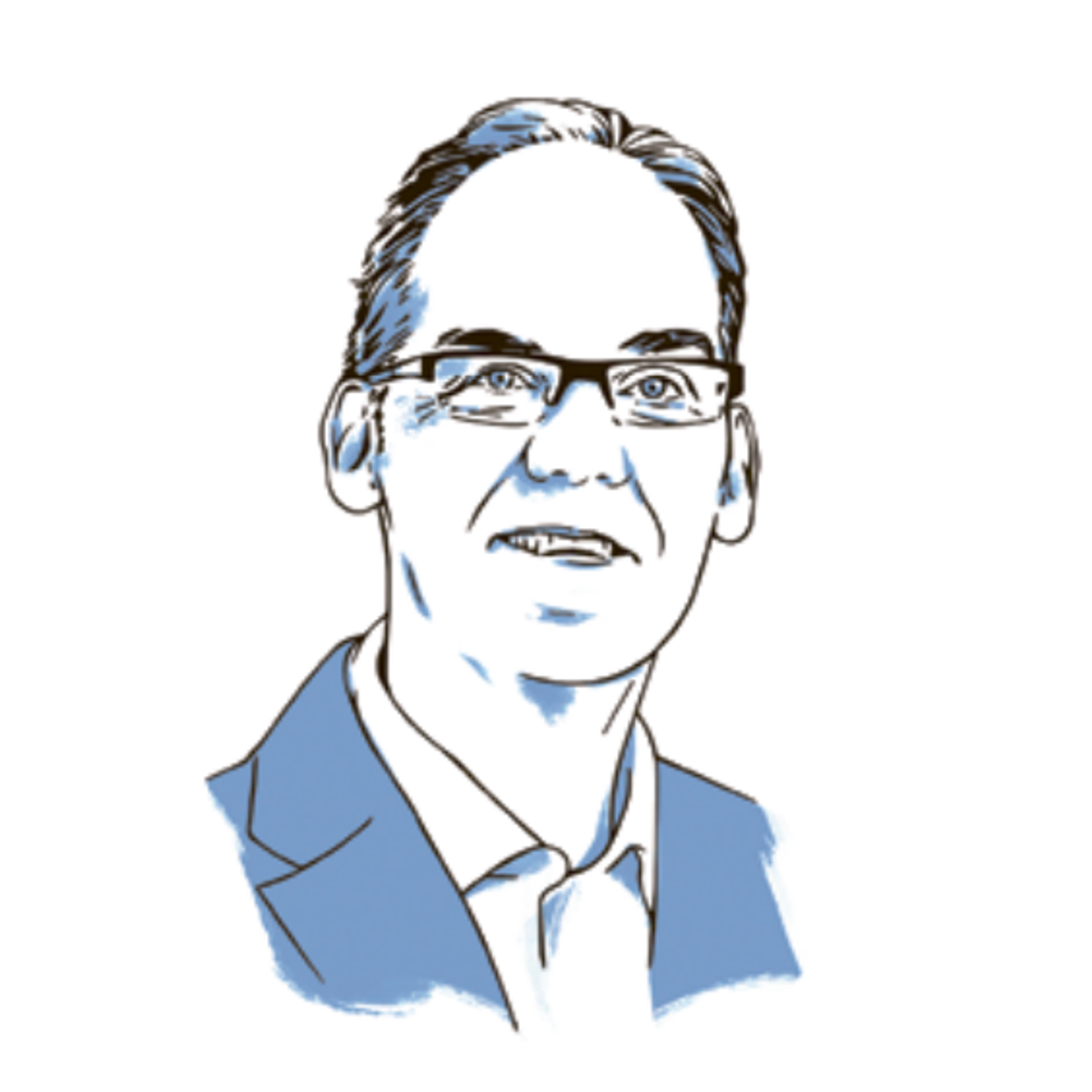AI Pioneers in the Life Sciences Sector

Switzerland’s strong life sciences sector is a pace setter in combining traditional approaches from the pharma and medtech industries with AI. Several start-ups have recently completed large financing rounds and new initiatives to support healthtech companies have attracted tens of millions in funding.
At the beginning of May, Swiss Biotech Day took place in Basel: 3,000 participants flocked to the Congress Center, including delegations from 25 countries that saw the international event as an opportunity to make new contacts. Start-ups were represented in large numbers, as were established companies and suppliers of all kinds. This major event vividly demonstrated Switzerland’s leading position as a biopharma hub. The Swiss Biotech Report, launched at the event, provides data-based information on the sector’s strength; for example, in 2024, the European Medicines Agency (EMA) approved 114 new drugs, in addition to 50 approvals from the US FDA.
Biotech start-ups have generated numerous large financing rounds in Switzerland, and a major investment was made during the week of Swiss Biotech Day, when HAYA Therapeutics secured USD 65 million in a series A financing. The start-up pioneers precision RNA-guided regulatory genome-targeting therapeutics that reprogram disease-driving cell states in all types of chronic and age-related diseases. HAYA had already caused a sensation in 2024 with its billion-dollar collaboration deal with Lilly.
Machine learning for drug development
HAYA not only represents the steady supply of new, promising start-ups, but also the combination of ICT innovation with traditional biotechnology. The company has developed the most comprehensive atlas of the regulatory genome, also referred to as the genome’s ‘dark matter’ or the ‘dark genome’, today recognised as the master control layer of gene expression and cell identity. The approach combines functional genomics with proprietary computational and machine learning methodologies, thus enabling the precise identification and modulation of pathogenic cell states across diverse diseases.
In addition to HAYA, other start-ups that use AI in drug development have also recently raised money, including BioCopy, which has completed a USD 8.7 million funding round. The company’s fully automated platform identifies and improves active ingredients for cancer therapy; the quantitative and qualitative datasets generated by the platform are analysed and evaluated using AI. InVirtuoLabs aims to halve development time and costs in pharmaceutical research using AI and advanced molecular simulations: the start-up has closed its first funding round of USD 3 million.
The winners of Venture Leaders Biotech also show how widespread AI-based drug discovery is in Switzerland. The 10 selected start-ups have won a business development trip, including an investor roadshow, to Boston, which will take place at the end of June. Three of the 10 winners – Aukera Therapeutics, Juvion Life Sciences and Nerai Bioscience – are using AI to develop new drugs.
Market success for cuffless blood pressure monitoring
Although it takes time for young biotech start-ups to bring their products to market, the situation is very different for companies that use AI for diagnostics. Hilo has already sold more than 120,000 of its devices for blood pressure monitoring and strengthened its position as a leader in the emerging cuffless blood pressure monitoring category. The company’s foundation machine learning model was trained on tens of billions of optical signals from real-world users and further refined with hundreds of millions of calibration points. At the beginning of May, the start-up completed an oversubscribed USD 42 million series B funding round, bringing the company’s total funding to date to USD 100 million.
Before establishing Hilo, the two founders spent more than a decade at CSEM, a research institute with a high international reputation that specialises in microtechnology. Other healthtech companies have emerged from the two Swiss Federal Institutes of Technology in Zurich and Lausanne, and from the Wyss Center in Geneva. The combination of traditional life sciences knowledge with IT expertise has also been promoted for years by organisations such as Biopôle and the DayOne Accelerator.
Another ambitious initiative was introduced at the beginning of May. Canton Basel-Landschaft will invest approximately USD 44 million in a medtech innovation hub. The site in the Basel metropolitan area is already home to Switzerland’s first commercially viable quantum computing hub, and the Straumann Group, a traditional provider of dental implants with sales of approximately USD 3 billion in 2024, intends to move its headquarters to the site.
FAQ on Swiss Biotech
1. Why is Switzerland considered a global biotech leader?
Switzerland couples a century-old pharmaceutical tradition with world-class basic research, generous R&D tax incentives, and streamlined market access procedures. The result is the highest biotech patent density per capita in Europe and a talent pool that attracts both multinationals and start-ups.
2. Which regions are the major biotech hubs in Switzerland?
Basel (biopharma headquarters and manufacturing), Zurich (AI-driven life-science spin-offs), Lausanne and Geneva’s “Health Valley” (medical devices and digital health), and the Ticino-based BioMed cluster collectively host most of the country’s biotech companies, incubators, and VC funds.
3. How large is the Swiss biotech sector today?
According to the Swiss Biotech Report 2024, the industry employs around 50,000 people and generated CHF 6.8 billion in venture funding between 2020 and 2024, with 114 EMA approvals and 50 FDA approvals in 2024 alone.
4. How does artificial intelligence intersect with Swiss biotech?
More than 40 percent of current Swiss drug-discovery projects apply machine learning for target identification, molecular design, or biomarker discovery, shortening discovery timelines by up to 50 percent.
5. What support programs exist for healthtech and biotech start-ups?
Prominent platforms include the DayOne Accelerator in Basel, Biopôle’s StartLab in Lausanne, and the Wyss Institutes in Zurich and Geneva, each providing lab space, seed grants, and clinical-grade data infrastructure.
More Content
-

Today marks a defining moment for the Swiss innovation ecosystem. Deep Tech Nation Switzerland officially launching Project Switzerland, a national initiative with a singular, critical…
-

More money has flowed into all Swiss scale-ups per capita than into scale-ups in the US or Israel. This is backed by a ten-year growth…
-

Impatience is Imperative There is a distinct cultural friction when a Swiss founder steps into the US market. In Switzerland, the prevailing operating system is…